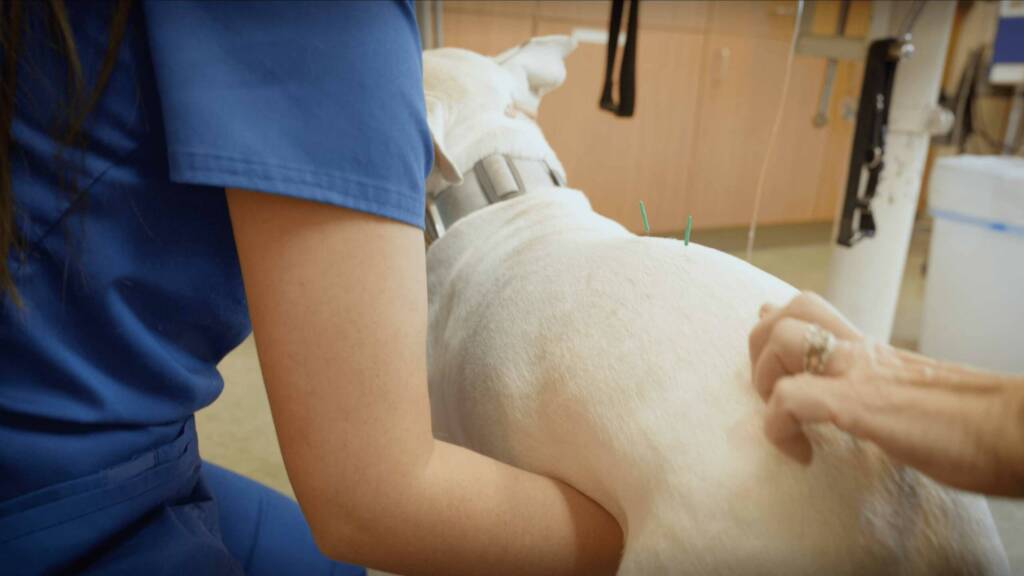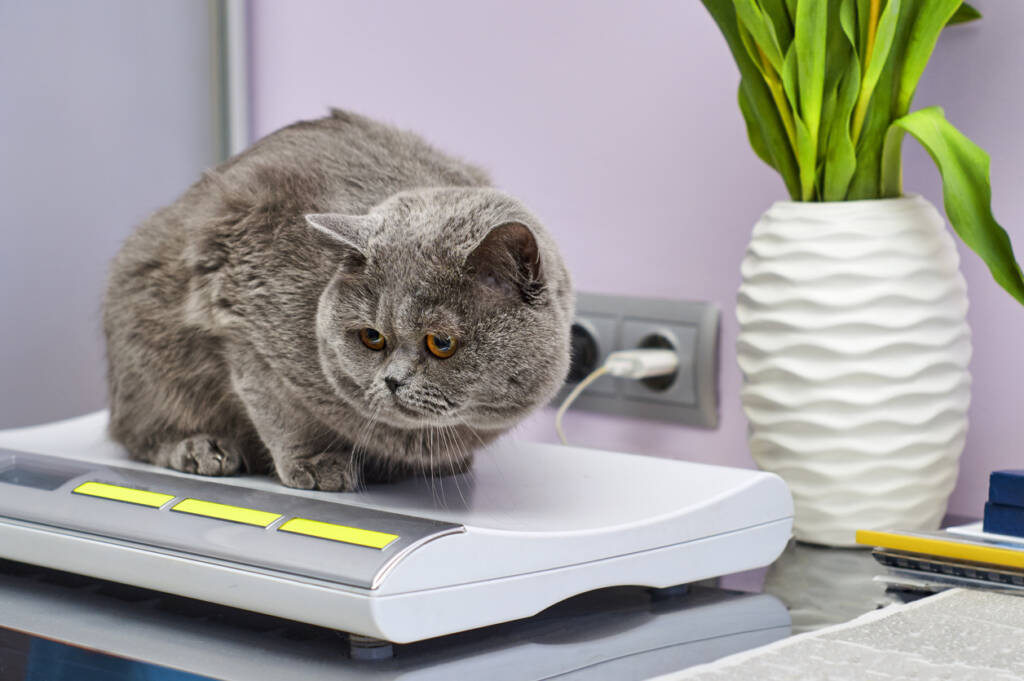With advancements in veterinary medicine, nutrition, and preventive care, pets today are living longer and healthier lives. However, aging can bring new health challenges, such as diabetes, heart disease, arthritis, and dental issues. At Schoolcraft Veterinary Clinic, we are dedicated to caring for senior pets and helping you support your senior pet’s well-being throughout their life, so they can fully enjoy their golden years in comfort and health.
When Does a Pet Become a Senior?
The aging process for pets depends on factors such as species, breed, and environment. Here are general guidelines to help you identify when you can consider your pet a senior:
- Cats and Small Dogs: Considered seniors at around seven years old.
- Large Breed Dogs: Often considered senior around the age of six, due to shorter average life spans.
If you are curious about how your pet’s age corresponds to human years, the American Veterinary Medical Association (AVMA) provides the following chart:

Common Health Concerns for Senior Pets
Caring for senior pets means recognizing and managing age-related health issues. As pets age, they often experience changes similar to those in elderly humans, such as vision and hearing loss, decreased mobility, and an increased risk of various diseases. Our veterinarians at Schoolcraft Veterinary Clinic are trained to look for and recognize these health concerns during examinations, ensuring that any emerging issues are identified early. Senior pets are particularly susceptible to developing:
• Cancer
• Heart disease
• Kidney and urinary tract issues
• Liver disease
• Diabetes
• Arthritis
• Cognitive dysfunction
Senior Wellness Screenings at Schoolcraft Veterinary Clinic
We recommend beginning senior wellness exams at age seven. These comprehensive exams and diagnostic tests help detect early changes in your pet’s organ function. Our veterinarians perform a thorough examination that includes assessing your pet’s nose, throat, teeth, gums, eyes, ears, coat, skin, lymph nodes, legs, paws, nervous system, heart, lungs, gastrointestinal tract, abdomen, and urinary system.
Alternative Therapies for Senior Pets

At Schoolcraft Veterinary Clinic, we offer alternative therapies that can significantly improve the comfort and quality of life for senior pets.
This gentle and effective treatment involves inserting thin needles into specific points on the body. When pets receive acupuncture, they typically experience a sense of relaxation and calm. The procedure is well-tolerated, and most pets show minimal to no discomfort when the thin, sterile needles are inserted into specific points.
This therapy helps stimulate the body’s natural healing processes, reduce pain, improve mobility, and promote overall well-being. It is particularly beneficial for senior pets suffering from arthritis, neurological issues, or chronic pain.
- Laser Therapy
Laser therapy is a non-invasive treatment that uses concentrated light to penetrate tissues and promote cellular repair. This therapy helps reduce inflammation, alleviate pain, and improve wound healing. It is commonly used for pets with arthritis, post-surgical pain, or inflammatory conditions. The treatment is painless and well-tolerated by pets of all ages.
5 Tips to Caring for a Senior Pet at Home

1. Monitor Your Pet’s Weight
Weight plays a significant role in an older pet’s health. Obesity can worsen conditions like arthritis, heart disease, and diabetes. On the other hand, sudden weight loss in a dog or cat can indicate serious health issues like diabetes, hyperthyroidism, kidney or liver disease, gastrointestinal problems, cancer, or severe dental issues. It may also result from internal parasites, heart disease, chronic pain, or stress. If you notice unexplained weight loss, consult with us promptly for a diagnosis and treatment. If you notice a sudden change in your senior pet’s weight, contact us promptly.
2. Encourage Physical Activity
Even as pets age, regular exercise remains important. Tailor activities to their ability, opting for shorter walks or multiple brief play sessions. Aim for at least 30 minutes of activity daily but adjust based on your pet’s comfort level.
3. Maintain Dental Health
Dental disease is a leading issue in senior pets and can cause pain and affect major organs. Regular dental checkups and cleanings at Schoolcraft Veterinary Clinic are essential to maintaining your pet’s oral health. In addition to regular wellness exams and professional dental cleanings, we will provide you with helpful tips on brushing techniques, dental chews, and choosing the right diet to keep your pet’s teeth healthy and strong between visits.
4. Assist with Grooming
All pets benefit from regular grooming. Brushing your pet helps remove loose hairs and dead skin cells while distributing natural oils. In their senior years, dogs and cats may need extra help maintaining a clean and healthy coat. Arthritis can make it difficult for them to reach all parts of their body, leading to matting, discomfort, and even skin infections. Regular grooming not only keeps their coat in good condition but also helps you identify any issues early, such as lumps, bumps, or signs of irritation.
5. Adjust Their Environment to Their Needs
As pets age, their physical capabilities and comfort levels change, requiring adjustments to their environment to maintain their quality of life. By making simple modifications, you can help your senior pet navigate their surroundings more easily and enjoy a safe and comfortable space. Here are a few adjustments to consider:
- Pet Stairs or Ramps: Ideal for helping pets access their favorite spots or get in and out of the car.
- Comfortable Bedding: Consider orthopedic or heated beds to alleviate joint pain and improve rest.
- Safe Spaces: Keep dogs on a leash outdoors. If your cat goes outside, please provide secure patios or enclosures to prevent accidents. The Purrfect Fence has fence and patio options to make the outdoors safe for cats.
- Help Them Find Their Way
Vision or hearing loss in a pet can be upsetting to pet parents. But pets can often learn to navigate around these disabilities. You can make your home a safe haven for your pet by doing the following:- Keep a consistent routine at home as much as you can. Minimize changes in the home, map out “routes” using textured runners, safety gates, and night lights.
- Incorporate sound cues for play, feeding, and enrichment. For example, a water fountain water bowl can help your pet locate water. Squeak toys or other toys that make noise assist your pet in play activity. Some cats respond well to clicker training. Vocalize your actions to keep your pet connected.
- Use scents for games of fetch, hide-and-seek, or to help your pet identify key areas like feeding spots and rest areas.
Caring for Senior Pets: Ensuring Comfort and Quality in Their Golden Years
Caring for senior pets requires attention, understanding, and thoughtful adjustments to their changing needs. By modifying their environment, monitoring their health, and providing regular wellness exams and alternative therapies, you can help your pet age gracefully and maintain a high quality of life. At Schoolcraft Veterinary Clinic, we are dedicated to supporting you in ensuring your senior pet’s comfort and well-being.
If you have any questions or would like to schedule a senior wellness exam, contact us today. Together, we can make these golden years enjoyable for your beloved pet.
Your Friends at Schoolcraft Veterinary Clinic


